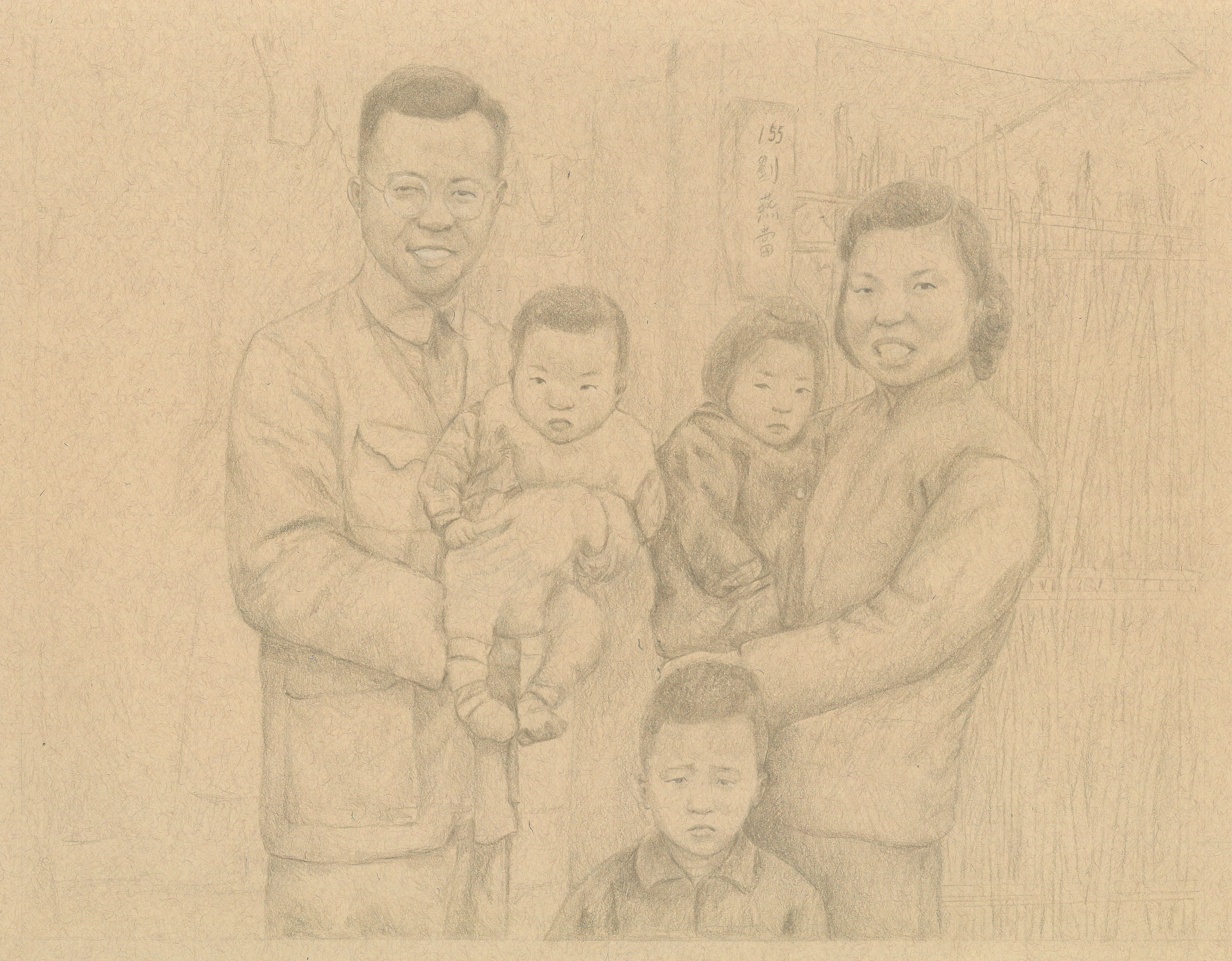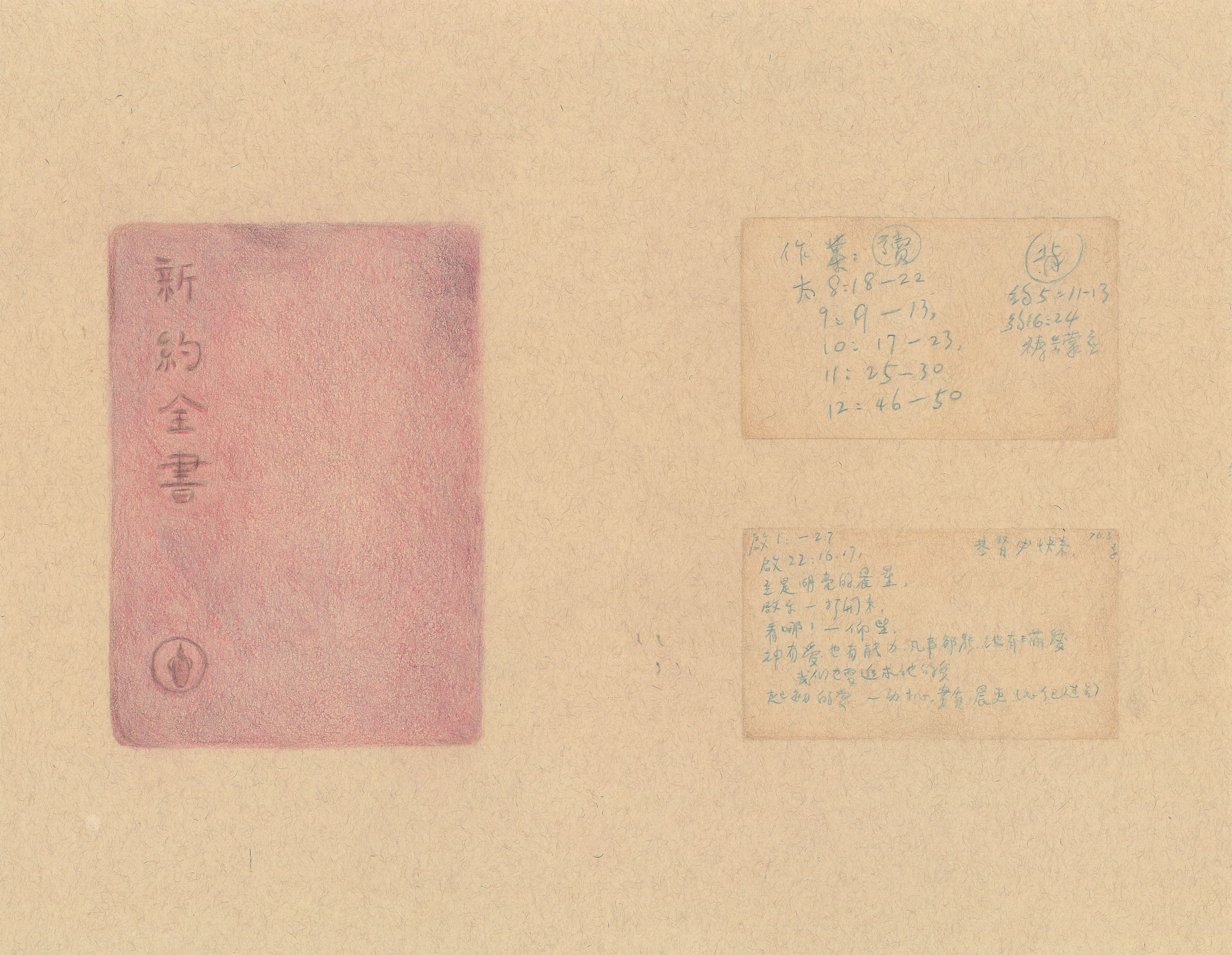

Chin-Jie Melodie Liu, Bamboo Memories (left)(2020) and Testament (right)(2020),
colour pencil on Strathmore Toned Tan paper (118 gsm), 27.9 x 35.56 cm each.
When I left my rural hometown for work, a friend introduced me to a friendly church — where I was offered free food and accommodation. Of course, it was appealing, but I left after two days as I could not betray my Taiwanese traditions and the customs my parents taught me.
The arrival of
waishengren 外省人
Waishengren, refers to “people from outside of the Province”, specifically referring to the two million refugees who fled with the Kuomintang Party from mainland China to Taiwan in 1949.
saw an increase in practicing Christians, Protestants, and Catholics.1 Christianity is currently the third largest religion in Taiwan at six percent, after Buddhism and Taoism.2 Disrupted by the Chinese Civil War, many waishengren found it difficult to continue their religious practices upon arriving in Taiwan. This was particularly evident among younger waishengren like my paternal grandparents who arrived as young adults, holding only a surface level understanding of Chinese religious traditions that were usually passed on by elderly family members. In addition, missionaries were willing to speak Mandarin Chinese compared to local Taiwanese temples where Taiwanese is the predominant spoken language. Furthermore, the President and leader of the
Kuomingtang
Party (KMT) 國民黨
The Kuomintang Party, also known as the Chinese Nationalist Party, was the dominant political party to rule China from 1928 to 1949 after the final imperial dynasty, the Qing Dynasty (1644-1912). The party retreated to Taiwan following their defeat in the Chinese Civil War and ruled the island from 1949 to 2000.
,
Chiang Kai-shek 蔣介石
Chiang Kai-shek (1887-1975) was the President of China (1928-38; 1943-49) and later President of Taiwan (1950-1975), both of which he led under the Kuomingtang Party (KMT). Chiang retreated from mainland China with his troops after the current Peking (Beijing) was seized by the Communists in 1949.
and his wife,
Soong Mei-ling 宋美齡
Often referred to as Madame Chiang, Soong Mei-ling (1897-2003) was the wife of President Chiang Kai-shek. Educated in the United States, Soong lobbied support for her husband on an international scale. Her influence was not just political, but also captured the hearts of many waishengren, who continue to see Soong as the nation’s benevolent mother.
were Christians.My paternal grandmother was heavily involved in the church as it provided her with a sense of belonging and community. She was studious and often took notes of bible verses to study before attending church.
1 Kuang-Chun Li 李廣均, ed., Sufferings of Waishengren Under the War Regime 離與苦-戰爭 的延續 (Taipei: Socio Publishing 群學出版有限公司, 2011), 138.
2 Office of International Religious Freedom, “2019 Report on International Religious Freedom: Taiwan,” U.S. Department of State, https://www.state.gov/reports/2019-report-on-international-religious-freedom/taiwan/.